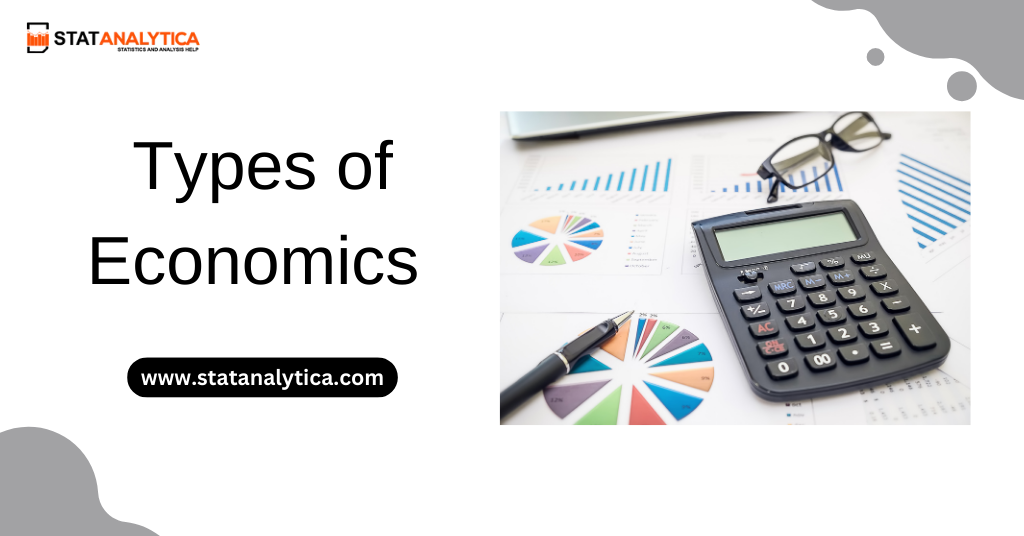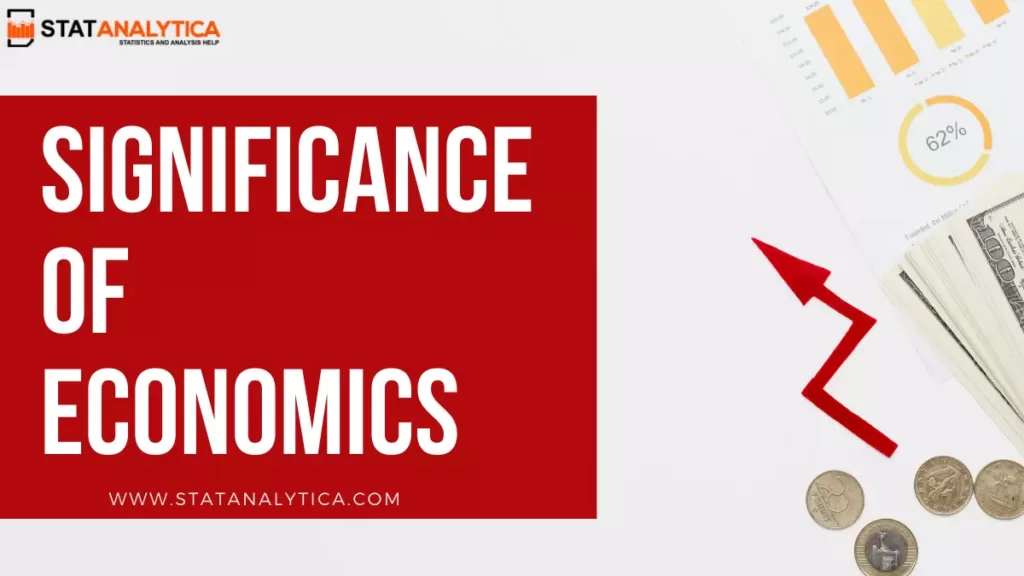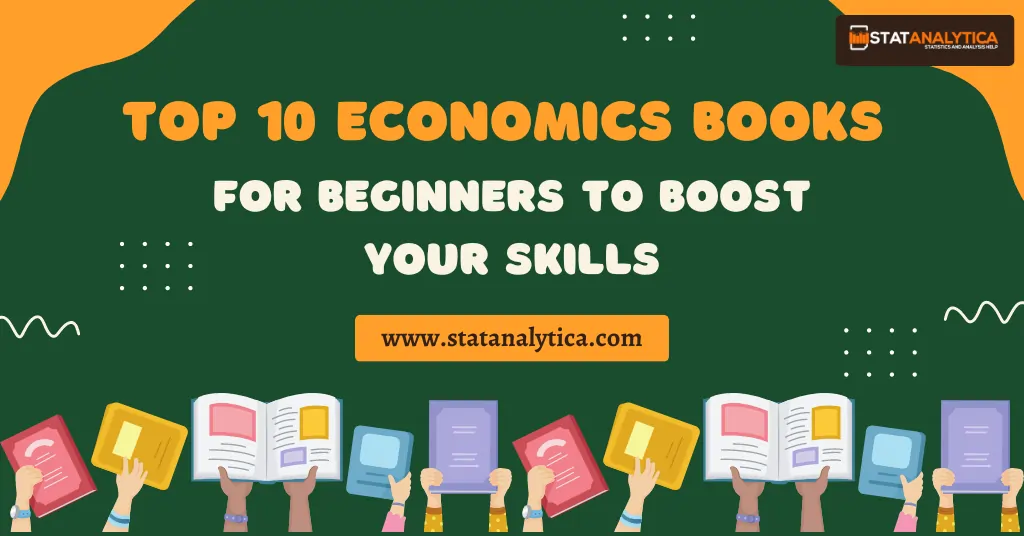Economics is critical in our everyday life. It allows us to analyze past, future, and current techniques and implement these models to nations, governments, businesses, and individuals.
Do you know what the thing this pandemic covid-19 affected most is?
Many lives and livelihood of peoples of course. But apart from this, it affected the economy of many countries adversely.
Almost everyone heard that our GDP went down due to this problem; in this challenging time, it becomes difficult to maintain the stability of the economy of any nation. An unstable economy leads to poverty, unemployment, corruption, criminal activities, and other problems.
Now, you can understand how the economy and study of economics are essential for developing a nation.
To understand these ups and downs, you should know the economics and types of economics deeply.
On the other hand, if you want to hire experts for your economics assignment problems. Get the best online economics help from our experts.
Let’s know the economics term.
What Is Economics?
Table of Contents
Economics is considered the social science that deals with the production, distribution, and utilization of products and services. It studies the allocation of resources for individuals, governments, businesses, and countries. Economics lies everywhere, from our home to the world. For the development of a country, economics is an important factor.
Economics is studied in two categories.
Macroeconomics: It focuses on the behavior of the economy as a whole.
Microeconomics: It focuses on individual people and business.
Also Read
- What is the Significance of Economics and Why it is Important
- Positive vs Normative Economics
- Statistics for Economics: Its Benefits and Limitations
Types of Economics
Every economy in the world is different from one another, although these economies share many common features. Economists identify 4 types of economy.
Let’s explore them one by one.
1. Traditional Economy
As the name indicates, it is based on the old or traditional techniques of the economy. It is one of the basic types of economy and relies on past methods. Traditional economies aim for the goods and services of their customs, beliefs, and history.
Traditional economies depend on agriculture, cattle, fishing, and herding, etc. This type of economics studies the economy of specific tribes and families. It adopts the barter system rather than money or currency. Initially, the trading concept was missing from the traditional economy because the people focused on producing the material or what amount they needed.
But with the passage of time, the traditional economy evolved, and people started farming with surplus crops and initiated the trading of crops. This change turned the traditional economy into a traditional mixed economy. That was the time when money or currency entered their lives, and they understood the concept of trading. Currently, In the region of Africa and the middle east traditional mixed economy is present.
2. Command Economy
In the command economy, the central power(Government) makes the decisions of the economy. The government decides what or in which quantity will be produced. In addition, the ruling power has the authority to fix prices, not the market forces.
In simple words, you can say the command economy is just the opposite of the free economy.
As the government controls all the economic actions by itself it is also known as the planned economy. Consequently, no competition exists in the market. The government has a monopoly on all the sectors and businesses.
In the command economy, all the businesses need to follow the instructions and rules given by the government.
One drawback of this economy is it overlooks the requirements of the individuals. All the ruling power should be able to fulfill the requirements and better the living standard of their citizens. But the truth is quite the opposite.
China and Cuba are examples of the command economy.
3. Free Market Economy
As we mentioned earlier, a free-market economy is the opposite of a command economy. Free market runs without the interference of Government. It entirely depends on the free market and trends. To put it more simply, there is no need to follow the rules either by buyers or sellers.
This type of economy relies on the law of demand and supply. A free-market economy represents the scenario where the rich get richer, the poor get poorer, and an imbalance of money or capital.
The USA and Hong Kong are examples of the free-market economy.
4. Mixed Economy
It is a blend of market economy and command economy. This is one of the most acceptable types of economics. This economy is known as the dual economy because it is a perfect mixture of socialism and capitalism. Although a mixed economy is free from government interventions, the ruling power will regulate and oversee sensitive sectors such as transportation, defense, etc.
This economy allows businesses to grow independently without the interference of the Government. In a mixed economy, public and private sectors can grow simultaneously. The mixed economy is adopted by most of the countries. India and France are the best examples of a mixed economy.
Key points
- Economics refers to the allocation of limited resources individually and collectively based on production, distribution, and consumption.
- Microeconomics studies the behavior of individual consumer and producers whereas macroeconomics analyze whole economies on a large scale(regional, national and international)
- Economics deals with production efficiency and the creation of incentives and policies to boost efficiency.
- GDP(Gross Domestic Product) and CPI( Consumer Price index) are the methods to indicate a nation’s economy.
- Stable economy is the key to the development of a country.
- Primary, secondary and tertiary sectors determine the economy of a nation.
Why Should Students Learn Economics?
Here are some points why students should learn economics:
• Economics helps to understand how society allocates its resources and makes decisions about the production, consumption, and distribution of goods and services.
• Economics can help individuals make better personal financial decisions, such as understanding how to save, invest, and manage their money.
• Understanding economics can also help individuals make better decisions as citizens and voters by being informed about the impact of different policies and proposals on the economy.
• Economics is a highly marketable skill that can lead to a variety of career opportunities in fields such as finance, business, government, and international relations.
• Studying economics can improve critical thinking and analytical skills, which are valuable in any field or profession.
• Economics can provide insights into global issues such as poverty, inequality, trade, and environmental sustainability.
• Knowledge of economics can help individuals to understand the causes and consequences of economic events such as recessions, inflation, and unemployment.
• Finally, economics is a fascinating and dynamic field that is constantly evolving and adapting to new challenges and opportunities. Studying economics can be a rewarding and intellectually stimulating experience.
Sectors of Economy
There are three sectors of economy that contribute to the better economy of a country. Let’s understand these sectors with the help of a table.
| Comparison Factors | Primary Sector | Secondary Sector | Tertiary Sector |
| Rely on | Primary sector relies on the environment conditions for the products. | Products are refined by the raw products. | It aims to service exchanges and production. |
| Importance | Here we harvest the products to acquire basic food and raw products. | It helps an economy to move from farming to market. | It assists in boosting technological advancement in various services. |
| Purpose | The purpose of the primary sector is to use the scarce resources wisely. | It focuses on providing jobs to the population. | The purpose is to boost the healthcare, defence and banking facilities. |
| Examples | Agriculture, farming, fishing, mining etc, | Industries and companies. | Insurance, banking, communication, transportation etc. |
What Is the Role of an Economist?
The role of an economist is to study and analyze the production, distribution, and consumption of goods and services. On the other hand, economists use data, statistics, and mathematical models to understand economic behavior and make predictions about future trends.
They also develop theories and policies that can help governments, businesses, and individuals make better decisions about how to allocate resources.
One important role of an economist is to analyze the impact of economic policies on different groups of people. They use economic models to predict how policy changes, such as tax rates or trade agreements, will affect economic outcomes such as employment, inflation, and economic growth.
Another important role of an economist is to provide advice and guidance to businesses, governments, and other organizations. They use their expertise to help organizations make informed decisions about investments, pricing, and other economic issues. However, economists also help to design and evaluate public policies, such as social welfare programs or regulations, to make sure that they achieve their intended goals while minimizing consequences that are not planned.
Jobs And Salary For Economics Students In 2023
Here are some jobs of economics students with salary in 2023 :
| Job Title | Average Salary |
| Financial Analyst | $65,000 – $95,000 |
| Economist | $70,000 – $120,000 |
| Data Analyst | $60,000 – $100,000 |
| Business Analyst | $65,000 – $95,000 |
| Market Research Analyst | $55,000 – $85,000 |
| Policy Analyst | $65,000 – $105,000 |
| Actuary | $80,000 – $120,000 |
| Management Consultant | $75,000 – $120,000 |
| Investment Banker | $90,000 – $150,000 |
| Statistician | $70,000 – $110,000 |
Note: The salaries are based on national averages in the United States and can vary depending on location, industry, experience, and other factors.
Indicators to determine Economy
Indicators are the reports and studies that reflect the economic performance of a country for a particular area. These studies are conducted by different organizations periodically. We measure the economy by-.
- GDP (Gross Domestic Products)
- Retail Sales
- Industrial Production
- Employment Data
- CPI (Consumer Price Index)
Conclusion
As a whole, the economy is a method that is used to measure how much resources we have, how to use them optimally, what we need to produce or in what amount, how to distribute these resources into the population, etc. In this blog, we have discussed the economics and types of economics that reveal the different features of different economies.
Most of the countries do not rely on one economic system but a mixture of two. I hope this blog will be helpful for you in understanding the different economic systems and which country depends on which system.
Frequently Asked Questions
Q1. Who is known as the father of economics?
A Scottish economist Adam Smith is known as the father of economics. Adam Smith was a philosopher and author too. He wrote a book on economics, ” The Wealth of Nation”. But in India, Mahadev Govind Ranade is considered the father of modern economics.
Q2. Which type is best out of all types of economics?
Although most of the countries accept a mixed Economy, after thinking theoretically free market economy is best. In a free market, we can buy what we need regardless of the scarcity of resources. This Economy focuses on the demand and supply principle. It is responsible for the continuous growth of the Economy of a nation.


